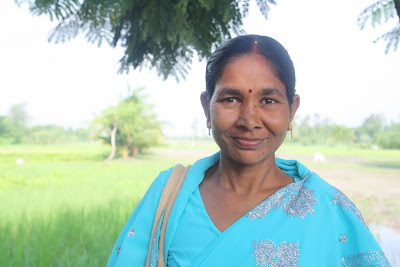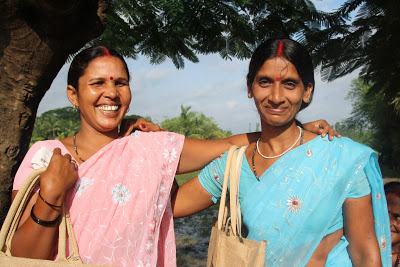Live from the 3rd Phase of the Women, Food Security and Climate Change Training

Women Farmer and Participant of the 2011 Women, Food Security and Climate Change Training in Uttar Pradesh, IndiaWomen Farmer and Participant of the 2011 Women, Food Security and Climate Change Training in Uttar Pradesh, India
The following is a report from India Program Director, Rucha Chitnis, who is in Uttar Pradesh, India for the final phase of the India Women, Food Security and Climate Change Training.
Climate change and food security continue to emerge as key global issues. In particular, they pose as persistent and disproportionate challenges for women. This year, WEA partnered with Indian organization, Gorakhpur Environmental Action Group (GEAG) to design the ground-breaking Women, Food Security and Climate Change Training in Northern India. The 3 phase training supports women farmers to respond to climate change with resilience so that they can ensure the food security and well-being of their families and communities. There have been two previous phases of this training–one in April 2011, the other in September 2011–where Indian women farmers gathered to gain hands-on skills in ecological farming techniques, develop peer networks, learn ways to mitigate the impacts of climate change, develop year-long action plans, and receive seed grants to launch community projects.
During this final phase of the Training, participants strategized on advocacy and movement-building strategies to demand the recognition of women as farmers and India’s key food producers, and to assert their rights to land and other resources (including government extension services that are rarely available for women farmers).
This Training is now in its final phase in Uttar Pradesh, reuniting 30 women farmers to share their learnings from the past 6 months of action plan implementation in their communities. Many of their action plans sought to improve the food security of small and marginal women farmers in the face of devastating floods.
Reena a participant from Bihar, shared how she facilitated the planting of 6,000 trees in 15 villages through her network of women’s groups and set up 4 farmer clubs of women, who were trained on organic farming practices. Manju, a trainer from Bihar, created 11 farmer committees of 144 women, and coordinated trainings for women on seed saving, mixed farming, bio-pesticides, and organic kitchen gardens. Want to read more?

Two of the participants of the 2011 Women, Food Security and Climate Change Training in Uttar Pradesh, India
“One tree equals the birth of a 100 sons.”
Reena, a participant at the Women, Food Security and Climate Change Training
